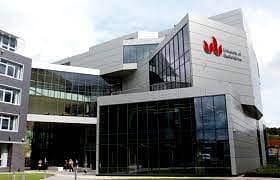Throughout this degree, you develop skills in all key electronic engineering areas, including analogue and digital electronics; signal processing; sensors; digital communications; software engineering; and embedded programming. You learn via a combination of theoretical learning, high-quality learning materials and hands-on, practical experience, quickly becoming adept at solving real-world engineering problems.The Institution of Engineering and Technology - Accredited Programme
This course is accredited by the Institution of Engineering and Technology (IET) on behalf of the Engineering Council, fully meeting the academic requirement for registration as an Incorporated Engineer and partly meeting the academic requirement for registration as a Chartered Engineer.
Why choose this course?
- Provides the knowledge and technical skills you need to analyse, interpret and make sense of electronic engineering
- Ensures you are up to date with emerging processes and technologies
- Develops your knowledge and understanding of the commercial and economic contexts of engineering processes
- You explore the computer software and hardware toolkits commonly used by electronic engineers
- You gain a thorough awareness of possible equality and diversity issues within electronic engineering
- Benefit from our well-established professional links with local and regional industry partners
- Take the degree over four years and include a fee-free year in industry (see below)
- If you need to step up into higher education, start with a Foundation Year (see below), which guarantees your place on the degree course
Unit Information - What will I learn?
Units
- Engineering Mathematics (CIS034-1) Compulsory
- Foundations Of Electronic Systems And Computer Networks (CIS038-1) Compulsory
- Fundamentals Of Computer Studies (CIS018-1) Compulsory
- Introduction To Software Development (CIS020-1) Compulsory
- Analogue And Digital Electronics (CIS071-2) Compulsory
- Circuit Analysis And Signal Processing (CIS047-2) Compulsory
- Digital Communications & Software Engineering (CIS072-2) Compulsory
- Dsp And Embedded Systems Development (CIS048-2) Compulsory
- Control, Energy And Wsn (CIS020-3) Compulsory
- Research Methodologies And Emerging Technologies (CIS013-3) Compulsory
- Social And Professional Project Management (CIS015-3) Compulsory
- Undergraduate Project (CIS017-3) Compulsory
How will I be assessed?
The assessments provide you with opportunities to diagnose your skills, abilities, academic/occupational background and to give you an early indication of what specific learning practices may help you improve in specific areas of study, starting from student induction period in conjunction with Fundamentals of Computing unit and throughout the entire in-course period of study.
There will be frequent opportunities to get feedback both from tutors, peers and via self-assessment, and some assessments will allow for draft submissions to be considered by a tutor or peers to identify aspects in need of development prior to final hand-in.
Assessment methods include portfolios, laboratory practical work, group and individual production projects, individual and group written reports and formal written exams.
Mini-projects and case studies provide you with real-world problems. You are expected to find solutions to the problems following the process of analysis, technique evaluation, design and syntheses, and solution evaluation.
These mini-projects and case studies are designed in both group work and individual work fashions to allow you to practice your communication skills and team working skills, and to develop the capability of working individually.


